Onboarding Success Shows That Sentinel Can Be the VPN Industry's Future, Not Its Replacement
A historic new partnership is on the verge of bringing 100k more daily users to the network, cementing Sentinel's potential as a home for all VPNs—including established ones.
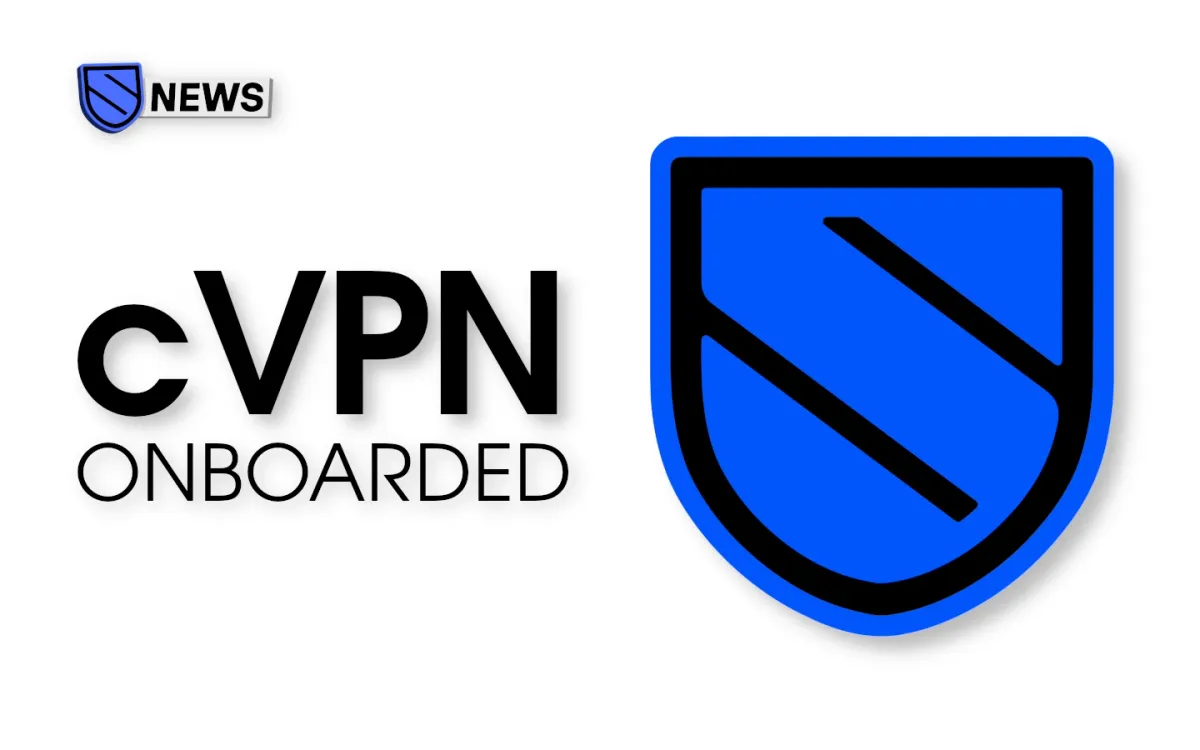
• dVPNs don't have to be built from the ground-up: Any VPN can integrate with the Sentinel's seasoned consumer-grade blockchain and reap the benefits of decentralization.
• Sentinel has just finished onboarding an (as-of-yet unnamed) centralized VPN with over 100,000 daily users, who will go live on the network in the coming weeks.
• This will rocket the project into the top 1% among DePINs in user adoption and on-chain revenue.
• Sentinel is open source and offers support, documentation, and utilities for teams who choose to integrate their product with the blockchain.
Not every dVPN on Sentinel needs to be a new app built from scratch—any existing VPN application can adopt Sentinel, regardless of whether their current architecture is centralized or decentralized.
That's because the trustless, decentralized model offered by Sentinel isn't necessarily competition or a zealous movement to replace the market's existing crop of brand names—it's a path forward that can benefit everyone in the sector, from users to developers. Blockchain has proven to be a perfect fit for VPN, quite unlike the vast majority of traditional web services which have received subpar Web3 makeovers over the past decade and a half.
Behind the scenes, the establishment VPN industry has shown great interest in Sentinel and have observed patiently for years as the chain's dVPN protocol has blossomed into a polished consumer-ready solution. To provide examples, in 2023 the team confirmed they were in direct contact with the founder of a centralized VPN (cVPN) on the same tier as ExpressVPN or NordVPN. Sporadic talks with a major web browser boasting over thirty million daily users have also taken place since Sentinel was founded in 2017.
However, the process of getting big brands to advance towards decentralization has been very gradual; as any multi-billion dollar company would be understandably cautious about diverting their operational fundamentals into relatively uncharted waters.
To get the ball rolling, Sentinel has focused on configuring its infrastructure to cater to enterprise-grade user traffic, widening its array of developer tools, and onboarding small-to-medium sized cVPNs with incrementally larger userbases to establish a track record of reliability and success.
The team has now achieved their first major success in that particular pursuit, and it promises to set a new paradigm for user metrics and revenue on a network which has already seen over one million unique users since going online in 2021.
Sentinel's cVPN Breakthrough
An established cVPN with over a hundred thousand daily users and over five million total downloads has just been onboarded to Sentinel and set up shop as a dVPN. The application is not yet live on the network, and we're still waiting for an official announcement from both parties, but all requisite work on the transition has been completed as of 7 September.
That process has lasted more than a year, and Sentinel's architecture required substantial adjustments and many all-new features in order to become ready for the heavy workload which is about to come its way. This new dVPN will skyrocket Sentinel's user metrics and on-chain revenue, which were already stellar for any blockchain project, into the top 1% among all DePIN blockchains.
To truly put this incoming wave of users into perspective: The dVPN network currently sees around ten thousand unique users per day spread across over eight applications. As we mentioned before, the newcomer has over a hundred thousand unique daily users. That means Sentinel is about to experience a 1000% increase in dVPN user traffic virtually overnight.
Indeed, an official announcement from January stated that previous numbers on Sentinel will soon look like "child's play."
Sentinel's 5 figure weekly active user count is about to be a thing of the past with the new centralized VPN that is launching on Sentinel's P2P Layer 1 chain.
— Sentinel (@SentinelP2P) September 16, 2025
Sentinel is already doing 20% of the daily bandwidth consumption of the Helium network. Now stats are about to rocket https://t.co/xbDlxQ2aw3
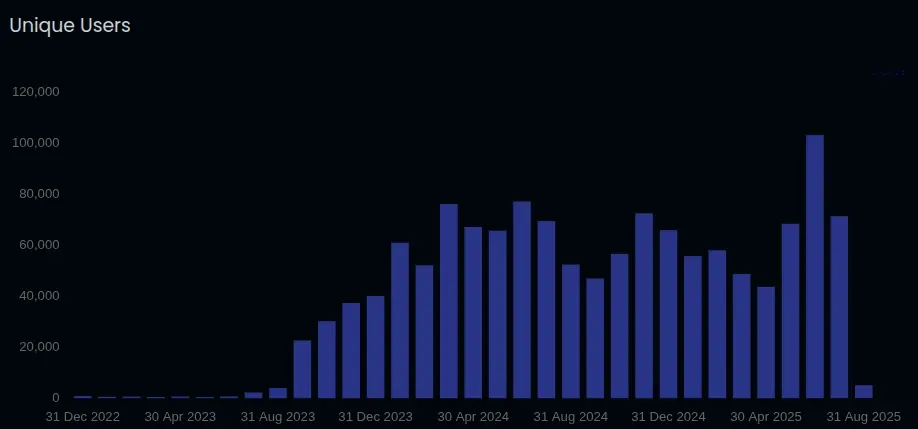
On when exactly the network's newest (and largest) dVPN will go live, ProjectAutonomy of the Sentinel Foundation elaborated that the goal is as soon as possible: "It's a very big transition... a lot of active users have to be bridged seamlessly."
Another exciting aspect of this news is that it could be the first domino to fall in an enterprise breakthrough for Sentinel: Not only does this demonstrate that dVPN can serve as a viable alternative to traditional VPN architecture, but it also shows that established brands with large paying userbases can onboard seamlessly. Establishing that track record now will be instrumental for onboarding even more cVPNs in the future.
📣 Stay tuned to Sentinel's official developer blog, X account, or Telegram channel for updates about the partnership—including the big reveal for the cVPN's identity.
Why Become a dVPN?
cVPNs would stand to benefit from the trustless and censorship-proof nature of the protocol due to the incalculable damage that's been done to their operations by data breaches and legal crackdowns. Though users face the bulk of consequences from these calamities, it also results in lost profits, PR headaches, and sometimes even litigation for affected providers.
Though the newcomer mentioned in the last section will be the first established VPN to make the transition to Sentinel, over eight applications have already been built from the ground-up on the network, with support for all major desktop, mobile, and smart television platforms.
dVPN provides teams with a framework to deliver a familiar UX and standard VPN features to their subscribers while also eliminating many of the insurmountable flaws which were baked into the traditional centralized model.
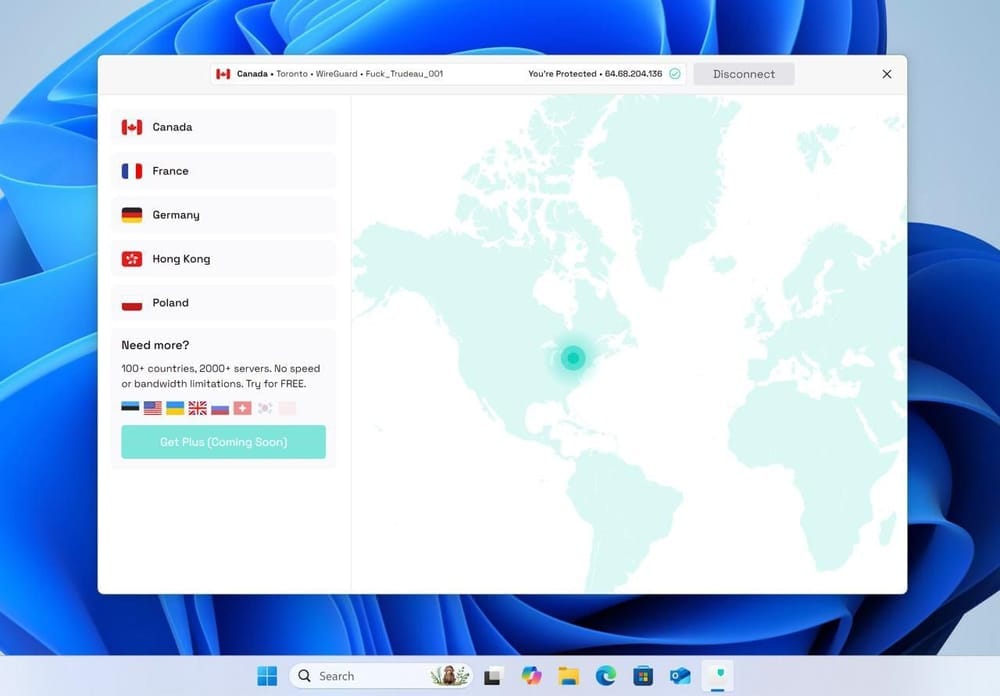
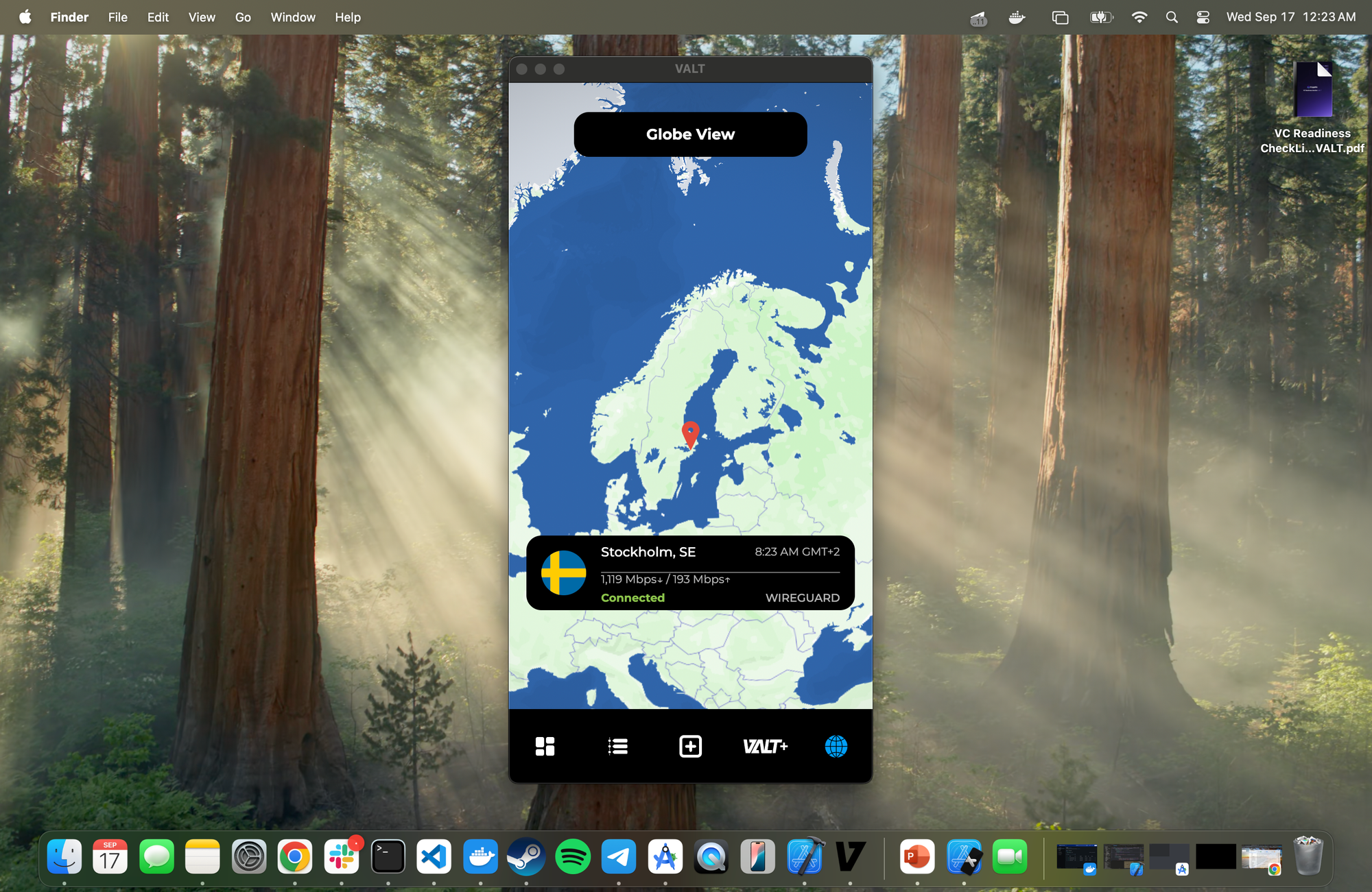
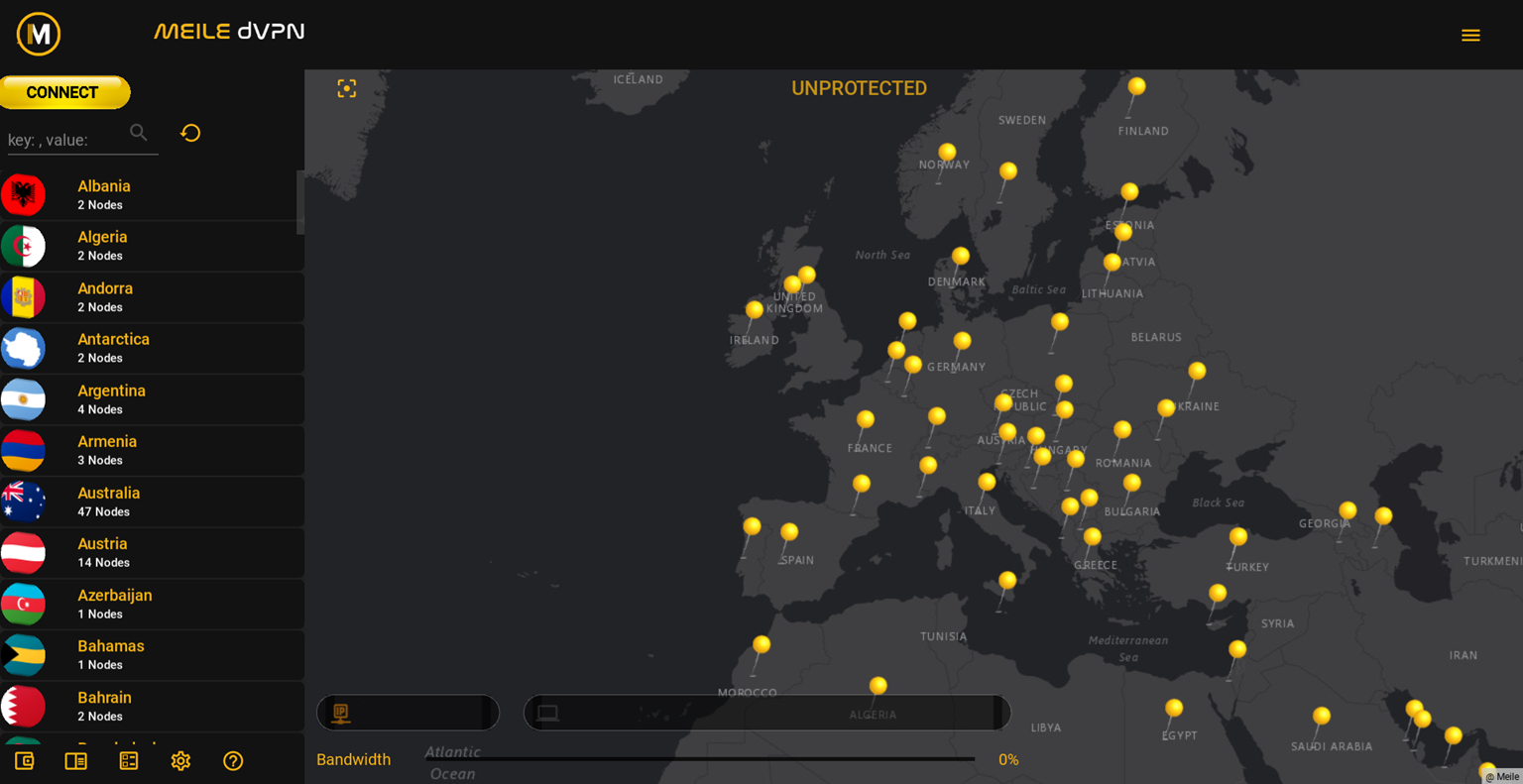
DVPN by NORSE Labs for Windows (left), Valt for Mac (center), and Meile dVPN for Linux (right).

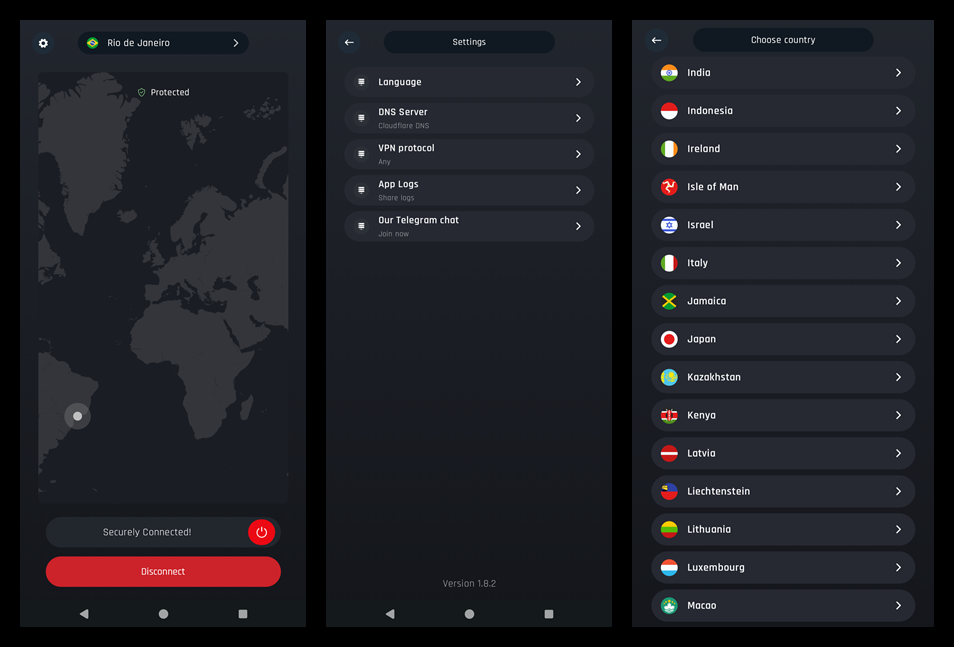
Sentinel Shield (left) and Independent dVPN (right) for Android.
Trustless & Transparent
Utilizing decentralized architecture means you provably cannot keep logs of user activities, payment information, or any other user data. Not only does that mean you cannot be harassed for them by any authority, it also means that you can transparently prove no-logging claims to your userbase rather than just asking for their trust.
Distributed Servers
dVPN offers unparalleled flexibility for servers: Several industry-standard VPN protocols are available for connections, and developers have full control over the selection of nodes available to their users through curated on-chain subscription packages. It's even possible for applications to host their own set of proprietary nodes and create a blockchain-based version of the traditional VPN model.
Unlimited Payment Mechanisms
There is no limit to the range of cryptocurrency denominations which can be used for subscription payments—in fact, your business isn't even limited to accepting digital assets.
There are working fiat payment gateways in nearly every third-party application built on Sentinel, meaning blockchain and crypto elements can be fully abstracted behind a traditional UX. From the perspective of an everyday crypto-agnostic consumer, the in-app experience within Sentinel-powered offerings like Valt, NORSE, or Independent dVPN is almost indistinguishable from that of household names like Mullvad or NordVPN.
Getting Started
A myriad of further developer-friendly improvements to the dVPN protocol are contained in Sentinel's upcoming milestone v12 hub upgrade, including USD-based pricing for nodes, faster connection times, auto-renewal for on-chain subscription plans, new backend logic for plan management, a node leasing system, and a simpler framework for granting free trials for new users.
Sentinel is open source (under the Apache 2.0 license) and offers a welcoming and helpful community environment for developers and contributors. A range of developer utilities including SDKs for Javascript, Python, and Golang are also available.

P2P NEWS
Powered by the Sentinel Growth DAO
The community's most-trusted nexus for news coverage of the Sentinel Ecosystem and its applications, distributed infrastructure, and third-party contributors across the globe.
SUBSCRIBE
Telegram • X • Newsletter
What is Sentinel?
Sentinel is a peer-to-peer global bandwidth marketplace which powers both privacy-focused consumer products and development utilities. The most prominent of these usecases at present are decentralised VPN (dVPN) applications and data acquisition for the training of AI models.
🎓 To learn more about Sentinel, check out more of our articles, visit the project's official website, or read the documentation.






